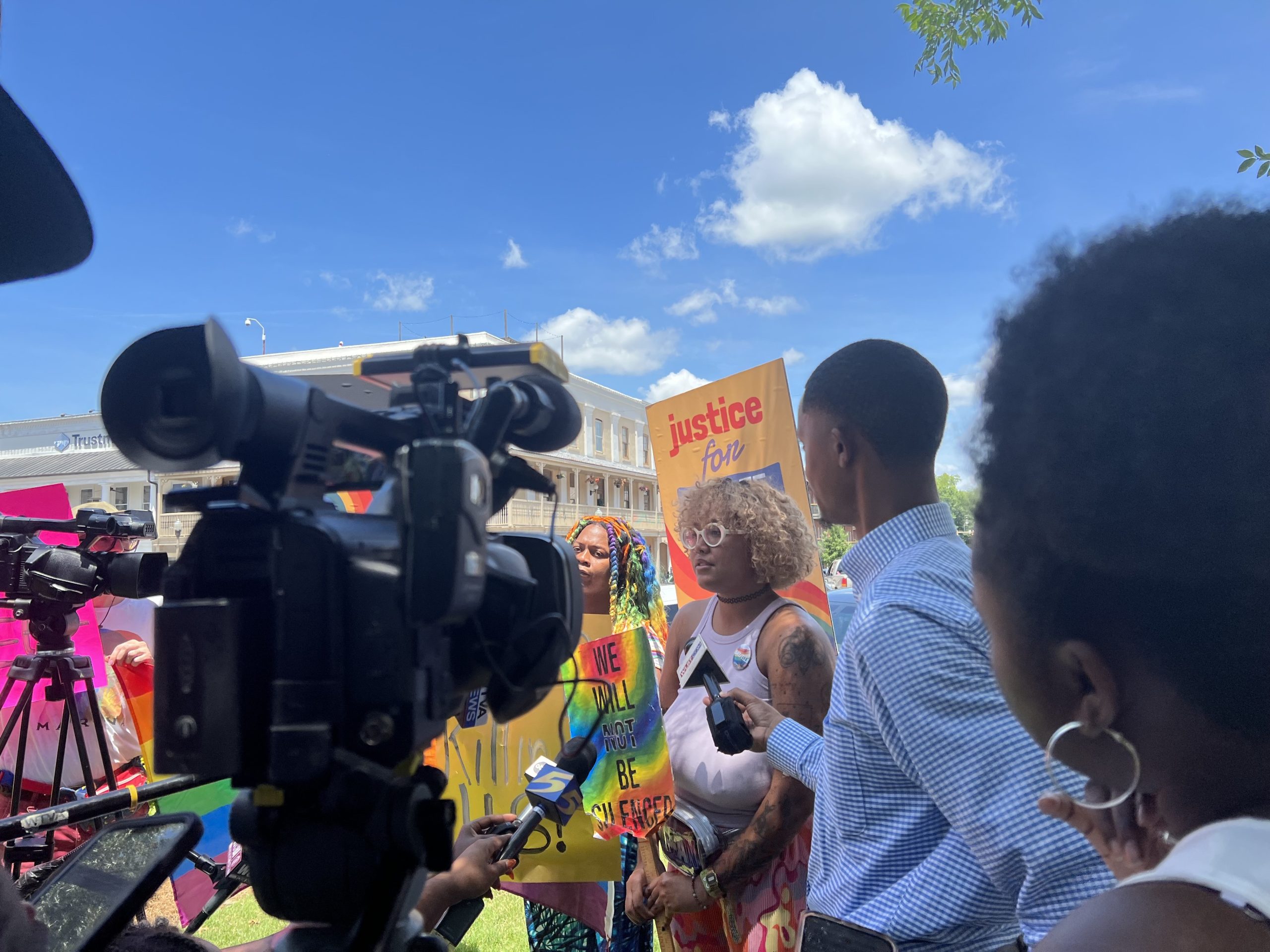OXFORD – Jimmie “Jay” Lee disappeared on his mother’s birthday.
Every year, Lee would call his mother, Stephanie, to sing “Happy Birthday.” On July 8, 2022, he texted her around 2 a.m. But the 20-year-old never responded after that. Not to Stephanie’s texts. Or to her 92 missed calls.
That’s because just a few hours later, Lee was allegedly killed by Sheldon Timothy Herrington Jr., a fellow student at the University of Mississippi with whom Lee had a secret relationship, the prosecution argued in their opening statement in Herrington’s capital murder trial on Tuesday at the Lafayette County Courthouse.
Lee had gone back to Herrington’s apartment at Herrington’s behest after the two had fought about sex, the prosecution said. Lee was a well-known member of Oxford’s LGBTQ+ community, but Herrington, whose family leads a prominent church in his hometown of Grenada, was not.
“He invited Jay back over with the promise that he was gonna do something he’d never done,” said Gwen Agho, a special prosecutor from Hinds County who joined the case to assist Lafayette County District Attorney Ben Creekmore.
But after 22,000 pages of evidence, 71 search warrants and seven law enforcement agencies, there is no direct evidence to show that Lee is dead, argued state Rep. Kevin Horan in his opening statements defending Herrington.
There is no body, no DNA, no blood and no urine, Horan said. Last week, he successfully moved to exclude evidence from K9 dogs from the DeSoto County Sheriff’s Department that “alerted” to the smell of a dead body in Herrington’s apartment and car after questioning its validity.
Horan also sought to cast doubt on evidence on what may be the strongest piece of circumstantial evidence the prosecution has to offer: A Google search that Herrington allegedly made while Lee was on his way over that reads “how long does it take to strangle someone.”
The search could have been about sexual activity with anyone, not just Lee, Horan said.
“I submit to you, ladies and gentlemen, that at the conclusion of this case, you’re going to have just as many questions then as you have now about whether or not they’ve proven a death,” Horan told the jury.
In fact, Horan said the evidence will show that it was actually Lee who threatened Herrington, because Lee sent a message before heading over telling Herrington “if this goes bad, it’s not gonna be good for you.”
If convicted, Herrington faces the death penalty or life in prison without the possibility of parole.
“You can’t go on objection, you can’t go on speculation, you can’t go on suspicion,” Horan told the jury. “Guesswork. Wonderment. All of those things you can’t do.”
The opening of trial came after jurors arrived late Monday night from Hattiesburg. Two years after Lee went missing, it was sparsely attended. Few sat behind Herrington, who never turned to face the gallery.
But Lee’s family and close friends seem just as committed to justice. Lee’s friends were the first members of the public to enter the courtroom shortly after 8 a.m. Some members of Lee’s family wore shirts with his picture on it.
They were instructed by Judge Kelly Luther to avoid emotional outbursts during testimony. Tissues boxes were placed in front of where Lee’s family sat. The attorneys were also told to keep their cool.
“I anticipate a hotly contested case,” Luther said before proceedings started.
The jury was comprised of eight women and seven men chosen from Forrest County. Eleven were white and four were Black.
During the selection process in Hattiesburg, potential jurors were asked if they had any problem with proof of death because Lee’s body has not been found, and none raised a hand. They were also asked if they knew any members of the LGBTQ community, or if they didn’t want to be exposed to information about a relationship between two men.
In his opening statement, Horan noted the case was touchy, due to Lee and Herrington’s sexual relationship and the emotions of Lee’s mother, who was the state’s first witness on Tuesday.
“The court is gonna instruct you at the conclusion of this case that you cannot allow your sympathy for a mother to come into play here,” Horan told the jury. “Y’all have got to decide this case on the facts.”
Horan also said that the jury will see no evidence to support Herrington’s underlying offense of kidnapping.
“If that didn’t happen, the rest of their case goes like a house of cards,” he said.
Aside from the Google search, Agho did not address the way Herrington allegedly killed Lee in her opening statement.
Instead, she emphasized all the details that police have gathered to prove Lee is no longer living. When Lee’s friend stopped by his apartment at Stephanie’s request, the door was ajar. Lee’s dog was inside. So were his valuables and his clothes.
That fall, Lee was slated to enroll in a master’s degree in social work at Ole Miss, but he never showed up for class. In the two years since he went missing, there have been no more credit card charges under his name, and no more social media posts.
“No more anything,” Agho said. “The plans for grad school? Moot. … All proof that Jay’s no longer with us.”
In November, a Lafayette County judge declared Lee dead, at the request by his parents for a legal declaration of death.
When Stephanie Lee testified, she said the last day she saw her son was on July 7 before he headed back to Oxford after spending the holiday at home in Jackson, according to her testimony.
“What was the last thing you ever heard from your son?” Agho asked.
“It’s your birthday,” she replied.
Justice Reporter Mina Corpuz contributed to this report.

